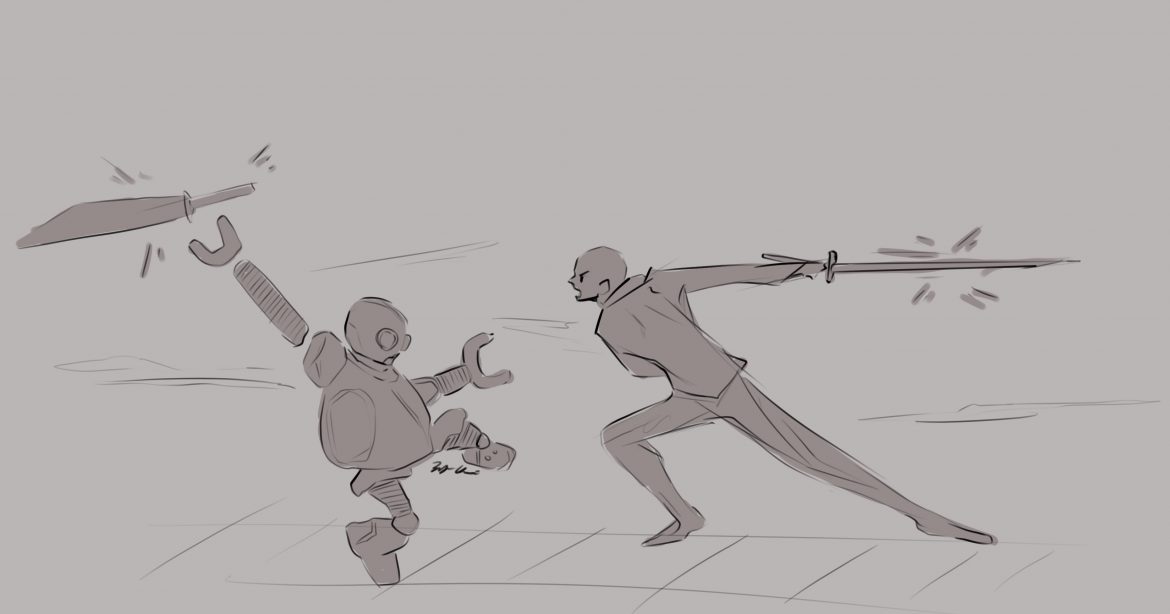Illustration Credit: Joyce Qui, Illustration Editor
Despite its controversial nature, artificial intelligence is a friend, not a foe
Ivo Oliveira, Contributor
Introducing the most revolutionary technology since the iPhone: ChatGPT. With 1 million users gained in under 1 week, ChatGPT is redefining the forefront of our technological landscape.
Officially released by OpenAI in November 2022, Chat Generative Pre-trained Transformer, or ChatGPT is founded on the Transformer neural network architecture originally pioneered by Google in 2017. Born of large language models and information mostly predating 2021, ChatGPT is an artificial intelligence (AI) trained on reinforcement and supervised machine learning techniques. In layman’s terms, ChatGPT is an advanced chatbot or virtual assistant you can access online, right now, for free.
ChatGPT’s responses are remarkably articulate and detailed across numerous domains of knowledge. ChatGPT can process a multitude of factors and variables instructed by users and seamlessly integrates prior context in the chatbox to formalize personalized responses in a matter of seconds. But, is it truthful? Well, yes and no. Allow me to explain.
Currently, ChatGPT is inconsistently accurate. The chatbot does not cite its sources and sometimes produces nonsensical answers or what some call “artificial intelligence hallucinations.” The chatbot is programmed to answer “morally” and truthfully, which means the responses hold some validity; however, these filters are only moderately effective. Furthermore, the chatbot is unable to fact-check its own logic. ChatGPT may deliver an eloquent response but sometimes it is not entirely coherent.
This brings us to a topic of much debate today: does generative AI, such as ChatGPT, belong in the world of academia and beyond?
ChatGPT is currently one of the most powerful consolidation tools out there. It allows for a detailed consolidation of anything you throw at it. Want to list key ideologies or worldviews of a certain concept or product? Done. Want it to summarize a short body of text? Done. Want it to merge, compare, break down, or provide insight on something? Done.
That being said, the generated body of information likely reflects the chatbot’s inferior-to-moderate expertise within the field of question. You must be the critic who fact-checks and assesses the value and insightfulness of the response. This is key to the effectiveness of a student’s ChatGPT usage since the modern academic world frowns upon AI-generated solutions and has created AI text-detecting technologies. These technologies focus on the text’s “perplexity and burstiness” as a measure of detection.
AI-detecting technology is arguably dangerous, since it may produce false positives, and potentially futile, since it may be circumvented on ChatGPT by prompting a response to invoke a significant level of perplexity and burstiness.
It is important to understand that the responses generated by ChatGPT are not original creations of the human mind and therefore, they cannot be protected by copyright law. These are generated responses, not copy-pasted material. However, plagiarism can occur if the user does not cite their sources and passes the information as their own. Traditional search engines like Google deliver information bound to a website link, which gives people a source of citation, but ChatGPT does not. Although Google does not offer a similar Chat search experience, Bing, founded by Microsoft (a notable investor in OpenAI), is integrating this Chat service into its search and its version can cite its sources.
As with many technological advancements, ChatGPT may eliminate repetitive jobs and create more forward-thinking jobs. In the academic landscape, AI has furthered the fields of data analysis and predictive modeling. Furthermore, AI is useful in ordinary settings and can improve image and speech recognition as seen in smartphone assistants, physical robotic assistance, and natural language processing as seen in ChatGPT.
With this, I hope it is somewhat clearer to see that ChatGPT is not a threat if it is properly regulated and understood. As ChatGPT puts it, “ChatGPT is like a brilliant but occasionally scatterbrained professor – it has a wealth of knowledge at its disposal, but sometimes it gets things wrong.”




